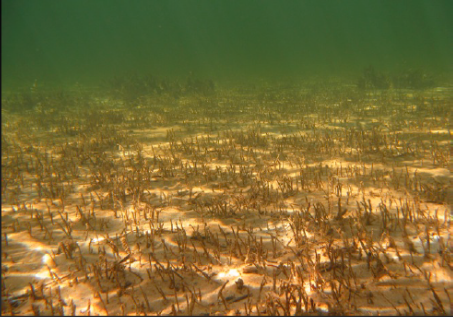Growing movement to highlight Shark Bay climate risks
Researchers are calling for an urgent response to mitigate the threats to the Shark Bay World Heritage site from the effects of a changing climate.
The results from a workshop, including 70 science and industry experts, has identified a critical need for management actions to prepare and respond to events like the 2010-11 marine heatwave that devastated seagrasses in the area.
Shark Bay is unique globally for its natural values, including stromatolites, extensive seagrasses that have constructed sills and banks over thousands of years resulting in restricted exchange with the ocean, unique and abundant marine megafauna, including one-eighth of the world’s population of dugongs, large populations of sharks and turtles, and one of the longest studied populations of dolphins in the world.
The loss of 23 per cent of seagrass cover in the bay (860 km2), as a result of the marine heatwave of 2010-2011, had a flow on effect to mega herbivores, fish, tourism and the aquaculture and fisheries dependent of the ecosystem. Events such as marine heatwaves are predicted to increase with global warming.
The workshop, held at Perth’s Indian Ocean Marine Research Centre in June, identified gaps in knowledge needed to support management of the Shark Bay World Heritage Site. It listed actions to bridge the gaps in knowledge and formed a list of suggestions on how best to proceed.
Workshop organiser Professor Gary Kendrick, from The University of Western Australia, said the actions outlined by the group were consistent.
“Overall, it is clear we need to establish a shared vision for a collaborative approach to address the priority areas to support integrated management decisions,” Professor Kendrick said.
Western Australian Marine Science Institution CEO Dr Luke Twomey supported the group’s suggestion to assess the social and economic benefits and priorities of fishing and tourism.
“For this process to have real impact, we need a better understanding of the stakeholder needs to identify the most socially and economically important aspects of this World Heritage site,” Dr Twomey said. “Once we’ve narrowed down the focus, we can develop the science plan needed to fill those gaps in knowledge that will support sustainable management and use of the region.”
“Most importantly we need to make sure that the research can be transferred into outcomes of economic, environmental and social benefit,” Dr Twomey said.
The outcomes of the June workshop will be fed in to a broader climate change workshop being held in Denham (17-19 September) to determine how susceptible the World Heritage site is to climate change, and if anything can be done to manage the effects.
The September workshop, organised by the Shark Bay World Heritage Advisory Committee and hosted by the Department of Biodiversity, Conservation and Attractions, aims to develop a vulnerability index that will lead to a climate change adaptation plan.

